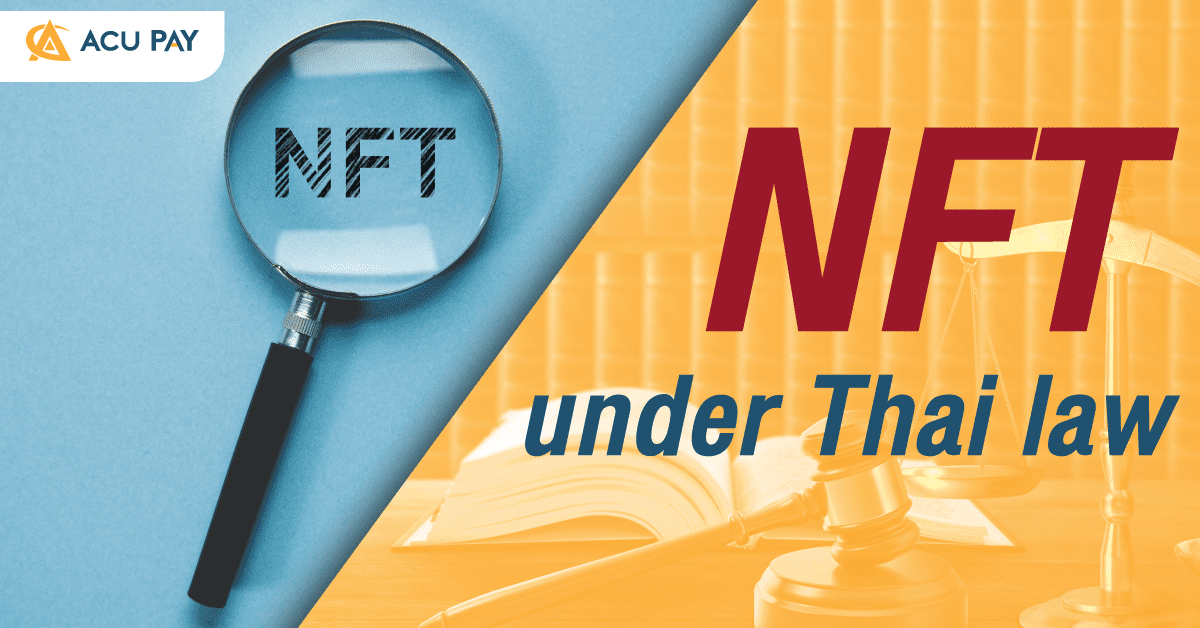

The Currency Act, Digital Assets, comprises cryptocurrencies and digital tokens. Although it was called “currency,” it is not legal currency. It cannot be used to pay debts (as currency) because the Currency Act B.E. 2501 Section 6 has stated that “currency denotes coins and currency notes” and in Section 7 it states that “a unit of currency is the “baht”: one baht is divided into one hundred satangs.”
Therefore, when we go shopping Let’s say it’s 1 NFT with a cryptocurrency like Bitcoin. We might think we bought it because we paid in digital currency. But legally, Bitcoin is not a currency, according to the law. No trading takes place. Instead, it happens as an “exchange”, i.e., we exchange 1 piece of NFT for an agreed amount of Bitcoin, when both NFT and cryptocurrencies are non-currency. Therefore, it is the status of “things” that can only be exchanged under the law.
The Civil and Commercial Code of “Exchange” is a legally binding contract. In the Civil and Commercial Code, Section 518 states that “Exchange is the contract that both parties transfer the right of ownership to each other.” If we sell NFTs, the buyer usually pays with cryptocurrencies. because they are on the blockchain together.
about the exchange, applying the law’s provisions on the matter of trading. There is no need to re-write Section 519, which stipulates that “in any provisions of the laws relating to the selling and buying, the exchange is also included in such provision by implying that both parties are seller and buyer for such transfer of such properties.”
As a result, when exchanging items such as NFT for cryptocurrencies, the person who owns the NFT has to hand over the NFT to the buyer, and the buyer has to hand over the cryptocurrency to the person who gave the NFT.
According to the Securities and Exchange Act, we will see that digital asset exchanges are established as securities trading, so are “digital assets” (or NFTs) also “securities”? You have to look at the Securities and Exchange Act, B.E. 2535. In the definition of terminology, the meaning of the word “securities” is defined as “securities” means
It can be seen that the law does not define digital assets (or NFTs) as “securities” in any way, and in the Emergency Decree on Digital Asset Business B.E. 2561, “Securities pursuant to the law governing securities and exchange shall not be regarded as cryptocurrency or digital token under this Emergency Decree.” In short, “digital assets” are not “securities” and “securities” are not “cryptocurrencies or digital tokens.”
However, in the near future, we may see “cryptocurrencies or digital tokens” because laws are sometimes enacted later than they really are, like gold, which in the past wasn’t accepted as it is today, needs time to prove its true value. The interesting thing is, what happens if we tie gold to a “cryptocurrency or digital token”?